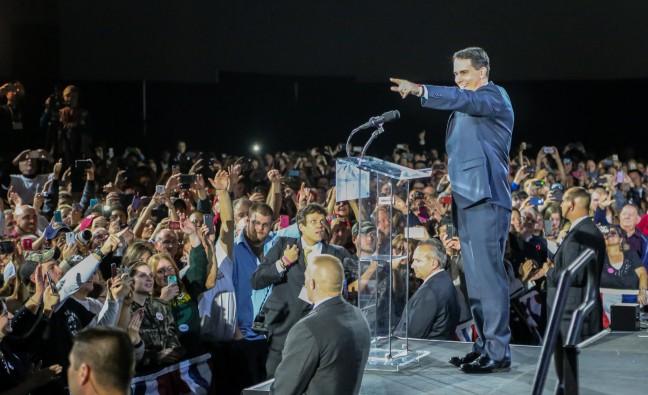A few days ago, I sat down for coffee with a conservative friend of mine. Among other things, we discussed the motives and implications of voter ID laws. The Supreme Court blocked its implementation in Wisconsin for this past election, but did not rule it unconstitutional as a whole. A majority of Wisconsin supports the law — certainly one should prove their identity to vote, right? Unfortunately, the dilemma stems far beyond this, and it is crucial we understand the real significance of voter ID laws.
A federal judge found that there is no evidence of voter fraud in Wisconsin. A study done by New York University’s Brennan Center for Justice found that in Wisconsin’s 2004 elections there were just seven known cases of illegally casted votes, NONE of which would have been resolved by voter ID. They even went as far as saying, “the voter fraud phantom drives policy that disenfranchises actual legitimate voters, without a corresponding actual benefit.”
This is the problem with voter ID; it hurts our political process by making voting disproportionately difficult for certain people. There are hundreds of thousands of people without ID in Wisconsin, many of whom would have substantial difficulty obtaining identification to vote.
The inevitable, impudent question arises — “shouldn’t people just get an ID, then they can vote?” Well, firstly, the political process should not be tedious, there should be no unnecessary hurdles. Secondly (and this applies to a lot more than voter ID), not everyone is like you, your friends, your family. People may be disabled, elderly, working all day, and a trip to the DMV is not feasible for them. There are a lot of people in the world. Have some damn empathy.
If eligible citizens want to vote and are unable to do so, then the results of an election are not representative of what the voting population collectively chooses — essentially we have a tainted political process. It is no wonder Republicans tried to push this in Wisconsin’s election, where the affected people substantially support Democrats. If that is somehow not the case, my question for supporters of voter ID laws is this: If the purpose is not to marginalize voters and voter fraud is unquestionably not prevalent, what is the purpose of voter ID laws?
Some conservatives have acknowledged that these laws have little to do with mitigating electoral fraud. Former Secretary of State Colin Powell and Sen. Rand Paul, R-Kentucky, have expressed their belief that Republicans are making a dangerous political move. Firstly, Republicans should advocate for voting and voting rights as they are essential for a representative democracy. More pragmatically, voter ID law puts Republicans in a bad light; it shows that they are not willing to expand their constituent base to include the minorities suffering the consequences of these laws.
On another note, I invite conservatives to justify their adamance for voter ID laws while simultaneously rejecting laws that would require identification to purchase guns in secondary markets. Republicans are touting bigger government when it diminishes their opponent’s constituent voting power, but not when it makes their Second Amendment rights marginally less accessible. I struggle to see how this is anything but blatant hypocrisy.
Should voters verify their identity when at the polls? Hypothetically, sure. However, it should not come at the cost of lower turnout (especially if this favors a particular party) when there is no evidence electoral fraud is even remotely a problem. I will support voter ID laws when we can assure that everyone who wants to vote has the ability to do so. What is a bigger threat to the integrity of democratic election, a few (if any) illegally casted votes or a systematic exclusion of certain demographics from voting?
Omer Arain ([email protected]) is a sophomore majoring in political analysis and research and economics.














